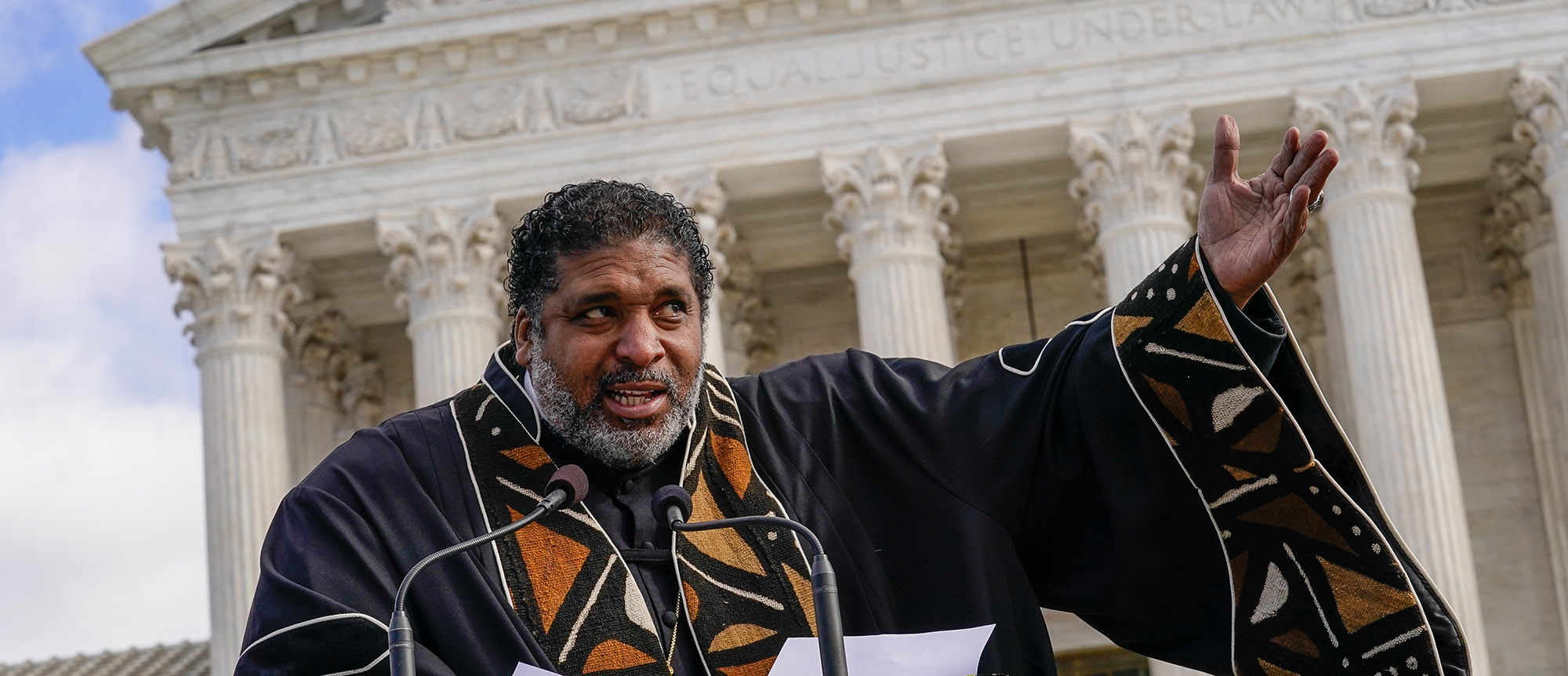The day after Christmas, minister, social activist and former chair of the North Carolina NAACP Bishop William J. Barber II was asked to leave an AMC movie theater in Greenville, N.C., after being told he could not sit in a chair that accommodated his physical disabilities.
 The North Carolina city is known for the 1960 “Greenville sit-ins” during the Civil Rights movement. Following the lead of activists in Greensboro, who just a few months earlier staged a lunch-counter sit-in at an all-white lunch counter, African Americans in Greenville began their own sit-in efforts at the public library, and later at lunch counters. These events made a significant impact in the desegregation of their towns.
The North Carolina city is known for the 1960 “Greenville sit-ins” during the Civil Rights movement. Following the lead of activists in Greensboro, who just a few months earlier staged a lunch-counter sit-in at an all-white lunch counter, African Americans in Greenville began their own sit-in efforts at the public library, and later at lunch counters. These events made a significant impact in the desegregation of their towns.
Barber and his 90-year-old mother came to the theater that day to see The Color Purple, a film adapted from the Pulitzer Prize-winning novel by Alice Walker that tells the story of a poor Black girl in rural Georgia in the early 1900s.
But to their surprise, they were denied seats in the theater. Due to a bad hip, Barber is unable to sit in chairs low to the ground, so he brings his own taller chair with him to events where he will need to sit down. According to Barber, this is the first time he has been asked to leave an event due to his chair.

Screen cap from a video of Barber with his chair talking with staff inside the theater.
In fact, Barber recalls his use of the chair on many occasions, including in other theaters, and even in settings much more prestigious than film screenings, including visits to the White House. He has even sat in the chair while preaching. He told WNCT news, “I’ve flown it overseas. I’ve sat in it in the Vatican when I met the pope. But I can’t come in a Greenville theater?”
Barber has stated publicly that, while he was taking his own chair into the theater, he fully intended to watch the movie from the designated handicap section of the theater where there are spaces for wheelchairs. Additionally, he does not recall seeing any signs upon entering the theater telling guests they must use the theater’s provided seats, nor any signage telling guests they weren’t allowed to bring in chairs for disability accommodation needs.
In a statement released by the Greenville Police Department, dispatch received a call for “trespassing at AMC Fire Tower 12.” The caller told police a customer, Barber, was “arguing with employees, and they wished to have him removed from the business.” After a brief conversation with one of the officers, Barber agreed to leave the theater voluntarily, and no charges were filed regarding the incident.
Since the incident occurred, the North Carolina NAACP released a statement, standing in “solidarity” with Barber, who they believe was “unjustly escorted out of the AMC Fire Tower 12 Theater simply for needing to use his own chair in the handicapped seating area to enjoy a movie.”

William Barber speaks during a demonstration at the U.S. Supreme Court during the MoveOn and Poor People’s Build Back Better Action on November 15, 2021, in Washington, DC. (Photo by Jemal Countess/Getty Images for MoveOn)
They also made these statements affirming their advocacy of disability rights, in light of this incident:
“NAACP North Carolina joins the Pitt County Branch in underscoring the urgent need for change. This incident serves as a powerful reminder that we must create spaces that are inclusive, fair and respectful of the rights of every individual. Discrimination based on physical abilities has no place in our society, and we must take decisive action to address this issue.
“While AMC has issued an apology, there is an urgent need for concrete steps to ensure accessibility in all AMC theaters across the nation. The NAACP stands united in our calls for accessibility and justice.”
The NAACP has also created a petition, asking signers to “embrace accessibility as a fundamental value.”

Ryan Noonan
AMC Theaters Vice President of Corporate Communications Ryan Noonan released a statement about the incident, apologizing for how Barber was treated at the theater. The statement reads:
“We sincerely apologize to Bishop Barber for how he was treated, and for the frustration and inconvenience brought to him, his family and his guests. AMC’s Chairman and CEO Adam Aron has already telephoned him and plans to meet with him in person in Greenville, N.C., next week to discuss both this situation and the good works Bishop Barber is engaged in throughout the years.”
For future AMC theater guests with disabilities, Noonan assured them of company-wide efforts being made to ensure accommodations, encouraging guests to call ahead or speak to a manager before a movie screening so employees are aware of and able to prepare for any accommodations guests may need.
“We have a number of accommodations in place at our theaters at all times, and our theater teams work hard to accommodate guests who have needs that fall outside of the normal course of business,” he said. “We encourage guests who require special seating to speak with a manager in advance to see what can best be accommodated at the theater to ensure a safe and enjoyable experience for the guest and those around them. We are also reviewing our policies with our theater teams to help ensure that situations like this do not occur again.”
Although no charges have been filed regarding this incident, Barber plans to hold a press conference at the Koinonia Christian Center in Greenville at 11:30 a.m. today to discuss his experience.


